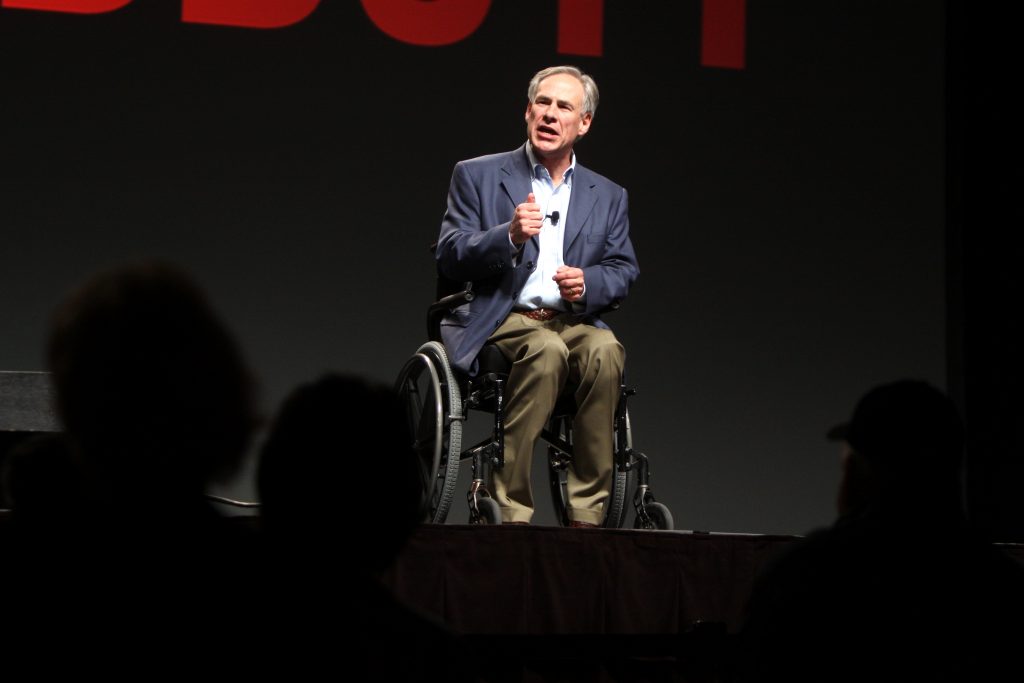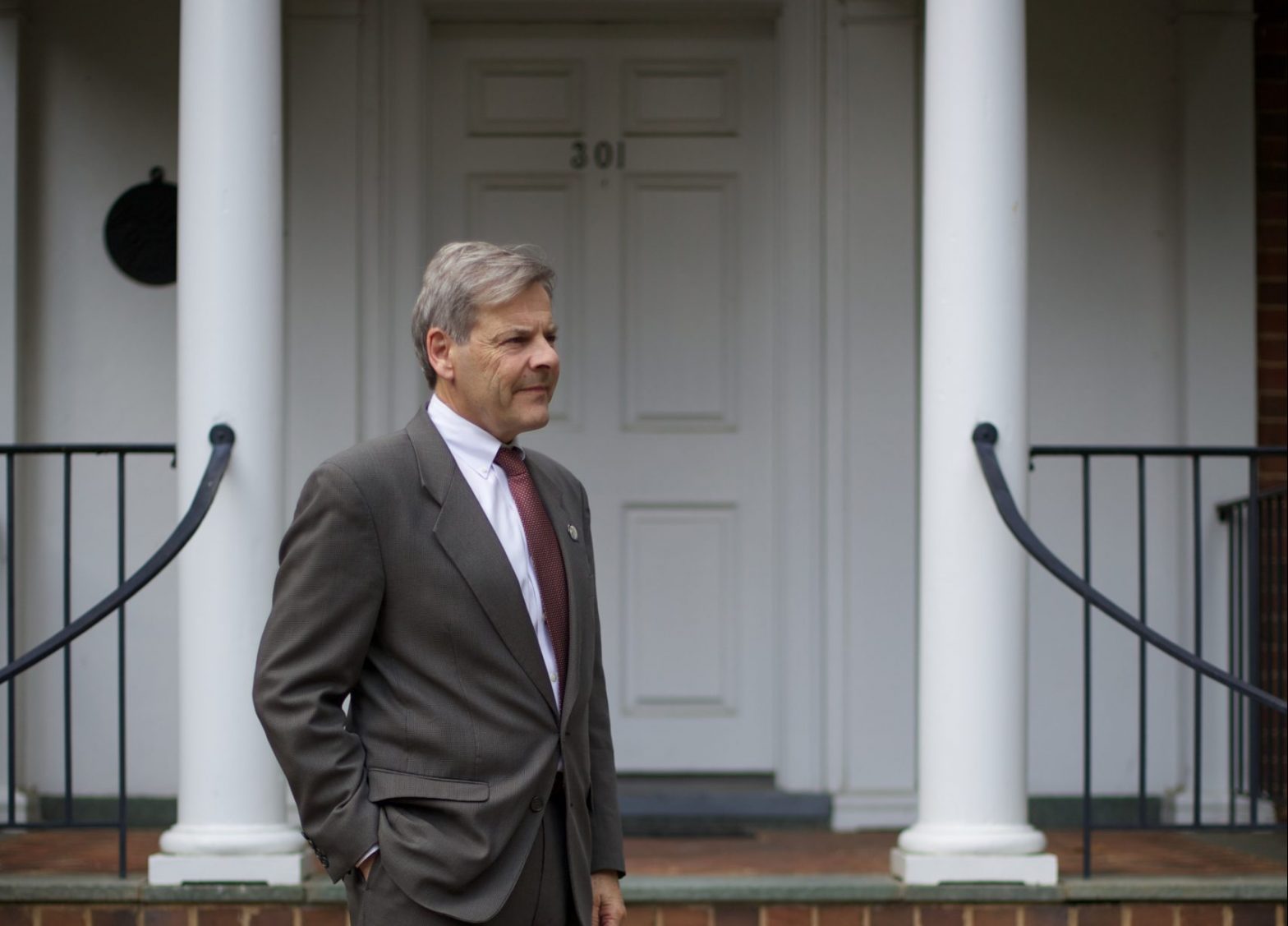Some of our states are up to no good. Texas just passed a comprehensive and dangerous abortion ban. Florida has banned mask mandates in schools, even as the delta variant sweeps across the nation. At press time, California voters are standing in line for a bizarre recall election that could see a candidate currently polling at 28 percent take the governorship.
Of course, since the founding of this country, states have always had control over their citizens’ lives in material ways. But the Trump era accelerated “a trend that has been apparent for years—states increasingly acting to fill the policy void,” writes longtime Charlottesville lawmaker David Toscano in his new book, Fighting Political Gridlock: How States Shape Our Nation and Our Lives. Reading the news the last few weeks, it’s hard to argue with his thesis. The challenge now is pushing back.
Toscano knows a thing or two about the powers of states: He spent 14 years as Charlottesville’s representative in the Virginia House of Delegates, and served as the Democratic leader from 2011 to 2018. (Republicans controlled the chamber for that entire stretch.) He retired from the House in 2020, though he’s still practicing law. He’s as eager as ever to gab about local and state politics, and writes regularly on his blog.
Fighting Political Gridlock, which was published by UVA Press and hit stands on September 7, isn’t a memoir. You won’t find Toscano waxing poetic about the halls of the state capitol or spilling juicy secrets about his former co-workers. Nor is it a polemic, in which he argues on behalf of the issues he spent so long fighting for in the legislature. Fighting Political Gridlock is more of a civics lesson than anything, an effort “to show why states matter in this great nation of ours,” he writes in the acknowledgments.
The book’s second chapter opens with a well-known quote from Supreme Court justice Louis Brandeis: “A single courageous State may, if its citizens choose, serve as a laboratory; and try novel social and economic experiments without risk to the rest of the country.”
Brandeis’ optimistic notion of our states is borne out in some ways, Toscano tells C-VILLE. “Look around at a place like Virginia, that’s been leading the way on the transformation towards a renewable energy economy,” he says. “We can do it a lot faster than the feds can, because they’re bogged down. It’s very difficult for the Congress to make decisions.” And in other areas, like election laws and criminal justice reform, Virginia has made real progress in the last few years.
As recent events show, however, state autonomy is a two-sided coin. To return to Brandeis’ laboratory metaphor: “Some scientists are geniuses,” Toscano says, “and some are evil geniuses. The things you produce in a lab can have really, dramatically bad consequences for people if you let them out.”
In theory, one major check on the worst impulses of the states is the body on which Brandeis sat—the Supreme Court. But in recent years, the court has repeatedly abdicated its duty to moderate the states’ laboratory experiments, Toscano argues.
“Although there are some places where the courts will rein in the excesses of the states, if you look at what’s happening in the Supreme Court, you can’t be particularly confident that they’re going to do the right thing,” he says.

So if the court won’t watch over the states, who will?
First and foremost, “the way to control the excesses is through citizen participation,” Toscano says. “It’s going to be citizen engagement—voting, pressuring, organizing at the state level—that’s going to hold people to account.”
For an illustration, Toscano turns to Georgia. In 2013, the Supreme Court’s conservative majority gutted the Voting Rights Act of 1965, removing a provision that required the federal government to sign off on new voting laws from states with a history of discrimination. That “unleashed a wave of voter suppression efforts,” writes the Brennan Center for Justice, and gave places like Georgia free rein to pass new, restrictive voting laws.
In the years since, Georgia has become “a really good example” of citizens pushing back on state recklessness, says Toscano.
“They have been working at the grass roots on voter rights for some time,” says the former delegate. “And they are having an impact. They’ve been able to make voting easier for people even though the state legislature tries to make it more difficult.” As a result, Joe Biden was victorious in Georgia, and two Democrats won in the state’s U.S. Senate runoff election.
In some circumstances, Toscano says, it’s also possible to push back on new state laws in state-level courts. State constitutions, crucially, often contain clearer language than the federal constitution. For example, the right to vote is not actually enshrined in the U.S. Constitution, but many state constitutions include “the right to fair and equal elections,” or a phrase to that effect. That allows for challenges to voting laws at the state level, and such challenges are underway around the nation. “At least 30 lawsuits are aimed at laws in 11 states that opponents say restrict voting access,” reported The Wall Street Journal this summer.
Is that recipe—grassroots organizing combined with legal action—enough to secure voter rights for all in a place like Georgia? “We’ll have to see, over the next few years, how this plays out,” Toscano says.
In the meantime, he hopes everyone in the country will pay attention to state politics more consistently. A politically supercharged Supreme Court case with national implications for abortion law draws plenty of eyes to the Texas legislature, but the day-to-day function of state government remains under-discussed, Toscano argues.
The book includes some horrifying figures about state-level political participation: Just one in three Americans can name their governor, and less than a quarter of Americans aged 18 to 34 can name a single one of their senators, according to two studies conducted in the last four years.
The state has a tremendous amount of control in education policy, Toscano says. Redistricting fights take place at the state level, and ultimately determine the makeup of the U.S. Congress. These and other issues often don’t break through in our ever-more-nationalized political discourse.
“For some time I have been concerned that people focused so much on the national government that they lose track of really important decisions that are being made at the state level,” Toscano says. “I hope this book will contribute to the dialogue about how we can fix it.”
